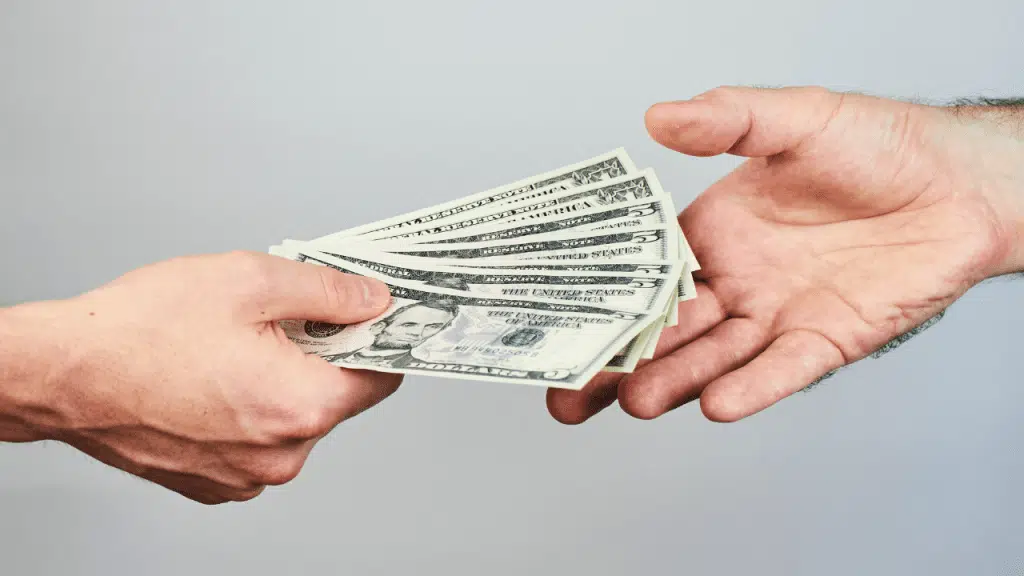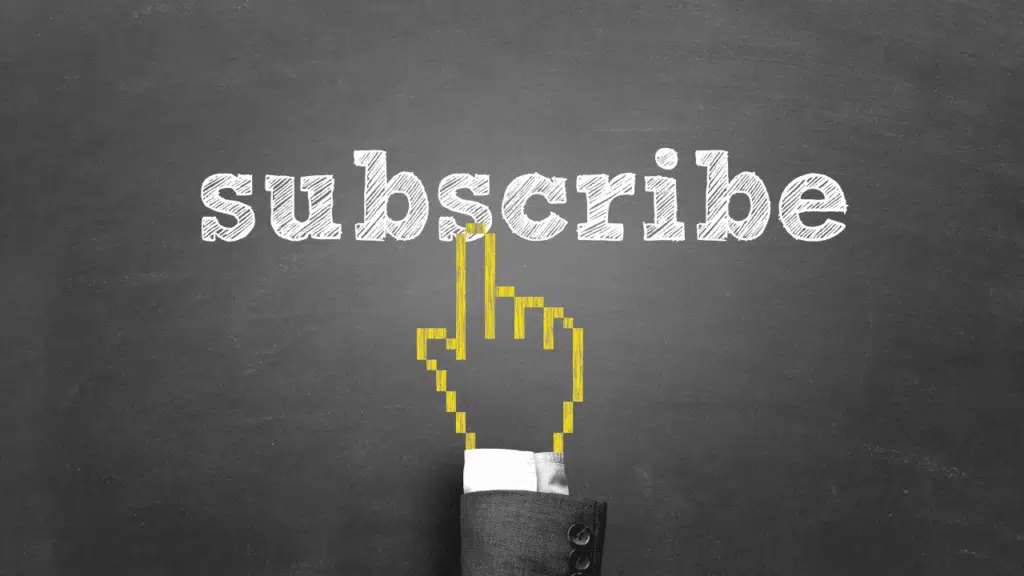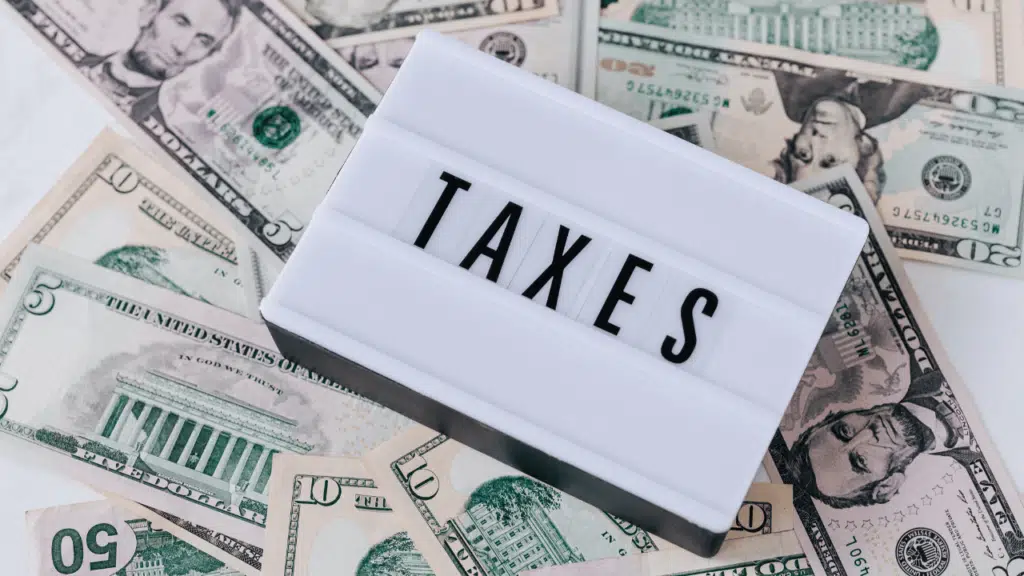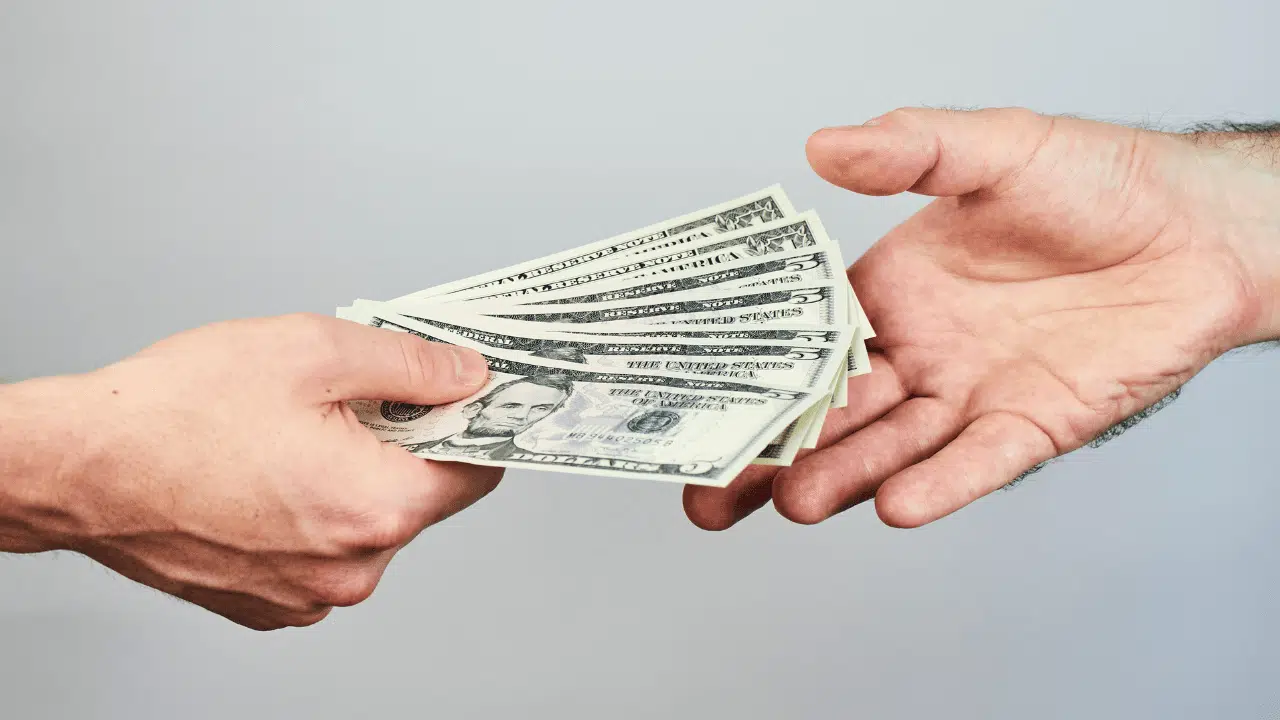Your financial future is an important thing to plan for. In order to have a good financial future and have more money, you need to make wise financial decisions today. There are many common bad money habits that people have that will affect their financial plans in the long run. These bad spending habits can include not having an emergency fund, spending too much on eating out and shopping, and not paying attention to interest rates on loans.
Here are 10 of the most common bad money habits that could lead you down a path towards a poor financial future and some suggestions to help you in building good money habits and breaking bad habits.
Habit #1: You Don’t Save Money
People don't always think about saving money. They'll instead put money into things that give them more immediate financial gratification, such as eating out at restaurants or shopping. They might also use a credit card to buy something and then pay interest on it later. Having savings goals is important because it can help you pay for emergencies, or unexpected financial hardships. It also helps build up your financial safety net so that you'll be less likely to borrow money from friends and family or rack up credit card bills when times get tough.
Habit #2: Not Having a Plan
People need to know what they're doing with their money if they want to create better financial plans and kick bad spending habits. It's very easy for you to get caught up in the moment, and end up using money irresponsibly. Many people spend their paychecks as soon as they receive them without thinking about what they really need or want. This can make for a stressful financial life.
Having a financial plan and financial goals is important because having a clear idea of where all your money is supposed to go will help you in the long run. You'll be able to see whether or not there's money left over at the end of the month, and if you can afford to live in certain areas based on your income.
If you have no financial plan in place, it will be very difficult for you to make any progress towards financial stability. It is also way more difficult to save money if you don’t have a clear financial plan.
Some financial plans call for financial goals to be broken down into a monthly budget, where you can track money that is coming in and going out on a day-to-day basis through your bank account statement or a budgeting app. If you're spending too much or not saving enough each month, then it's time to make some changes that will get you back on track. The good news is that you can break bad financial habits and start good money habits today.
Habit #3: Always Borrowing From Friends and Family
Borrowing from friends and family members is one of those bad money habits because it can damage relationships that you have with people you care about. While borrowing from someone you know may seem like the easiest option at first, it usually leads to people asking for the money back later down the road which could result in an awkward situation or even worse – credit card debt! It's okay to borrow a little every once in a while, but do your best not to make a habit of it. You want to have good habits that allow you to live your life, not take on extra debt.

Habit #4: Spending More Than You Earn
If you are spending more money each month than you are earning, your financial health is at risk. Using credit cards can give you a false sense of having a good financial situation. The best way to fix this habit is by cutting unnecessary expenses and finding ways to earn some extra cash on the side. You can also look into creating a budget so that you know exactly what amount should be coming in every month. I created a free simple fillable budget that can help you start saving money. Click here to get access.
Habit #5: Living Above Your Means
You might be able to afford those fancy eats, but if you can't pay for them without depriving yourself of financial security and peace of mind, you're living above your means. To avoid this bad financial habit in the future, stick with buying what's necessary and keep unnecessary spending at a minimum.
Don't just buy nicer things to impress your friends or coworkers. It's not worth the financial stress. Seriously no one cares. You’re the only one who can see the brand name.
Habit #6: Not Sticking to a Budget
A financial plan without a budget is wishful thinking. Sticking to your financial goals requires you to live within the means of that specific financial plan, no matter what temptations or distractions try to lure you away from it.
Ready to make your first budget?
Enter your email and get the free template
A budget is a good idea because it allows you to set financial goals and gives you a clear picture of your financial reality. It makes the path towards financial success easier to see, which is why it's such an important part of any financial plan. You can begin to improve your financial situation by leveling up your money habits.
There are also a lot of different options for budgets, so you can find the one that works for you.
I offer a free budget template that you can download here.
Habit #7: Not Tracking Your Spending
You might be surprised at how much money you actually spend in a month. Scratch that, you will definitely be surprised.
If you don't track your spending, it can lead to financial problems down the road when one bad decision leads to another and suddenly, there's no money left for necessities like rent or food.
How I make $11,000 per year renting out my spare rooms?
Get access to my FREE guide now.
You can use financial apps such as Mint to track your expenses so you don't need to do it by hand. Use technology to save you time.
Habit #8: Not Being Financially Educated
It's important to educate yourself about personal finance because financial problems can be difficult to fix if you don't know what you're doing. Being financially educated can also help you be better prepared to kick bad spending habits.
There are so many personal finance books, articles, and videos that can teach you the basics of personal finance. You can even binge Youtube videos to get a better understanding of the topic. That’s what I did years ago and it has helped me implement better money habits in my life.

Habit #9: Not Having an Emergency Fund
You should always keep some money in an emergency fund so that if you have any unexpected expenses, like an accident or illness, you'll be able to pay for them without having your finances out of whack.
Your emergency fund should have 3-6 months of expenses in it at all times. This part of your finances will be if you experience a job loss or other problem that prevents you from working for a period of time. Each day is the same thing until it isn’t. Be ready.
Habit #10: Not Having Any Retirement Savings
Retirement savings are essential to retire early or at all. If you don't start building wealth today, then there won't be any income later on in life to support your living needs. Having your kids are savings accounts is not something you should do to them.
You should start to save money as early as possible because the more time you give yourself, the better off you'll be with it. You can either do this through a 401k or an IRA. And remember, you can definitely cut costs and live on less money than you are right now.
With a 401k, you can contribute pre-tax money, which provides you with tax savings now. With an IRA, you are not limited by income level because anyone who has earned income will be able to put money in it. But make sure that the financial institution is reliable and you’re getting the best deal. Do research but don’t let it stop you. Start investing today.

Habit #11: Incurring Credit Card Debt
Credit card debt is one of the worst financial problems you can have because it is so easy to fall behind. Credit card spending racks up quickly and causes people financial stress when they are trying to pay off other loans or make their mortgage payments each month.
Having a lot of credit card debt and subsequent interest charges can set you back significantly when planning for your financial future and can make it difficult to eliminate other bad money habits like impulse spending. This is why habit #4 is so important. You want to make sure you are putting in place good money habits.
Paying off your credit card balance IN FULL each month is important because you will save on interest and financial stress. Credit card companies can make interest on someone else!
It is not enough to only pay the minimum monthly payment. This is what the credit card issuer wants you to do as it makes them lots of money each month. This will not help you build wealth.
You can also get a better credit score if you pay off your full balance each month consistently, which is important for your financial plans. Being debt-free is also great for your mental health and savings plans. You don’t want to be in the grocery checkout line wondering if your credit card will be approved or not, that’s stressful and avoidable.
Bad credit can affect things such as being denied to rent an apartment, paying more interest on loans and even paying more on auto insurance.
To check your credit score for free, click here.
Habit #12: Incurring Late Fees
Bad money habits such as paying your bills late can cause financial stress and trouble down the line. Not only will you rack up late fees, but it may impact any financial plans you have in the future, like buying a house or even getting an auto loan to buy a car.
To avoid this bad habit, make sure you know when each bill is due and pay them on time. It may even be beneficial to have a separate savings account for recurring bills. You can have money automatically transferred into the account from your checking account every time you get a paycheck and have it automatically transferred out when the bill is due so you don't even have to think about it, and won’t have to pay any more late fees.
Habit #13: Spending Too Much on Shopping
People might think that if they spend money on something, it's better than just letting the money sit in their account. However, people often forget about financial planning and don't realize how much of an impact purchasing items can have on their finances down the road.
Shopping is another overspending category. Shopping is an activity that people enjoy, but it can also have a negative impact on your finances. If someone shops in order to feel happy or keep themselves distracted from their problems, they might not realize the financial effects of this bad habit until much later when they're looking at how much money has been spent on unnecessary items. Credit card spending is the number one enabler of impulse shopping.

Habit #14: Buying Everything New
It may be tempting to buy everything brand new, but buying new items is more expensive than buying used or even making things yourself. If you can afford to buy everything brand new, there is nothing wrong with doing so—but if not, it may be worth considering whether a product needs an upgrade and what options are available for purchasing gently used products in good condition.
If you like to read, Amazon always has used options for books, and the price can go from $25, all the way down to $3. You just have to ask yourself if it's that important to have that crisp cover. When I’ve bought books on Amazon 90% of them are in great condition.
If you're in the market for a new phone, eBay has lots of great reseller options. You can buy last year’s model that looks brand new at a fraction of the retail price.
There is nothing wrong with buying second hand things. In fact, there are financial benefits to doing so. Buying secondhand items reduces financial strain on your wallet immediately. You can get more bang for your buck if that's something important to you—and it should be!
Habit #15: Ignoring Your Student Loans
It's not a good idea to ignore your student loan debt because they affect financial planning. If you don't take care of your student loans, that will reflect on every financial decision in the future—including buying a house or getting married!
Even if you're just making the minimum monthly payment, it's important to treat it like any other financial obligation. Your student loans are no different than any other financial responsibility, so don't ignore them.
Habit #16: Having Unnecessary Subscriptions
Unnecessary subscriptions and memberships, like to Netflix or Amazon Prime —count towards financial planning. If you're paying $12 a month for something that you barely use, it may not be worth it.
Look at all of your subscriptions each month and consider whether they're all necessary. Remember, you can always share an account with a friend or family member to save some extra money! These unused subscriptions can be canceled easily online. When you add up $10 here and there over the course of a year it starts to add up.

Habit #17: Not Setting Financial Goals
Financial planners recommend you set goals for yourself to work towards in order to give your money purpose and direction. Without specific personal finance goals, you'll have no real reason to save and you will be more likely to spend impulsively. It’s also difficult to eliminate bad money habits if you don’t have goals to combat them.
Financial goals don't have to be big or grand, but they should be something you work towards every day. Your financial goals will help keep your financial house in order and give you an idea of where you want to be financially, both this year and for the long term.
Habit #18: Making Too Many Impulse Purchases
It's so easy to spend impulsively, especially in today's digital age. When you go online shopping or see something in a store that catches your eye it can be difficult not to whip out the credit card and buy it right away without thinking about financial consequences.
Impulse buying is one of the worst bad money habits when it comes to financial planning because it can set you back for months, even years. There is no free money. If you're not careful about your financial habits and just buy impulsively because it feels good at the moment, you could potentially lose out on something much more valuable than a new shirt or pair of shoes—like long-term financial stability for yourself and maybe even your family.
Habit #19: Taking Out Payday Loans
Do your best not to take out payday loans because they are debt traps. These financial products make you pay extremely high-interest rates compared to any other loan or credit product out there. Once you start the payday loan cycle it’s difficult to break. Best to avoid these at all costs.
Habit #20: Not Planning for Taxes
If you know that you will be owing money on your taxes, you should plan for it and save up your money so that you can pay the IRS at least a portion of what you owe. This is because if you don't, they will charge interest on top of whatever amount you still need to pay back.
Create a savings account and automatically deposit a certain amount each month from your paycheck to keep from spending it all right away. This way, when April 15th comes around, you will have the money ready and waiting for you in your bank account.

Habit #21: Eating Out Every Meal
Every meal doesn't need to be eaten out in a restaurant; it is expensive and not usually very healthy.
Instead, try planning your meals ahead of time for the week so you know exactly when each meal will take place.
If you work out of the house, pack a lunch every day so you don't have to eat out on your lunch break.
Habit #22: Not Checking Your Credit Report
Check your credit report once a year in order to keep up with any changes that may have occurred. This will help you see what's working for you and what isn't, so be sure to track it regularly! You may even find late payments that should not be on there. You can dispute these inaccurate items directly with the credit bureau.
Here’s a post going over how you can access your credit report for free.
Having bad credit can affect your ability to get financial aid for college, get a mortgage loan or even rent an apartment.
Conclusion
Bad money habits can have a detrimental effect on your financial future. In order to have financial security and confidence, it's important that you start working on changing these bad habits as soon as possible.
Luckily all of these bad habits are totally fixable. It is never too late to start improving your financial future, as long as you're willing and ready to put in the work.
How I make $11,000 per year renting out my spare rooms?
Get access to my FREE guide now.
